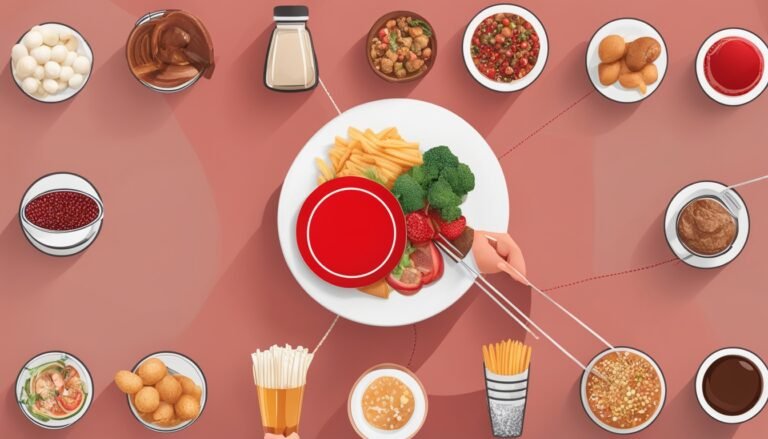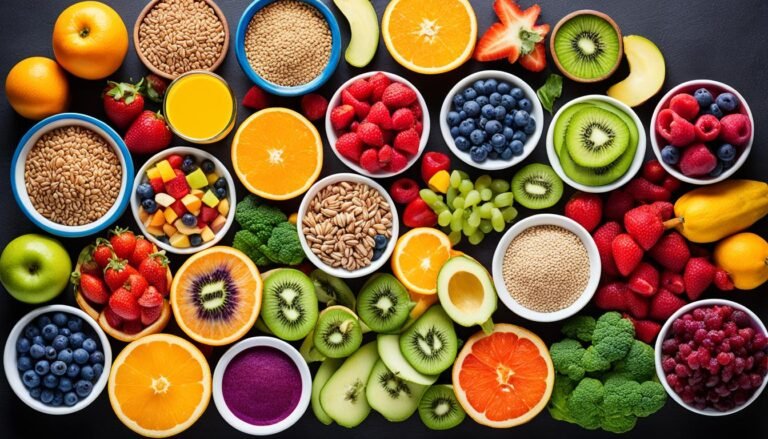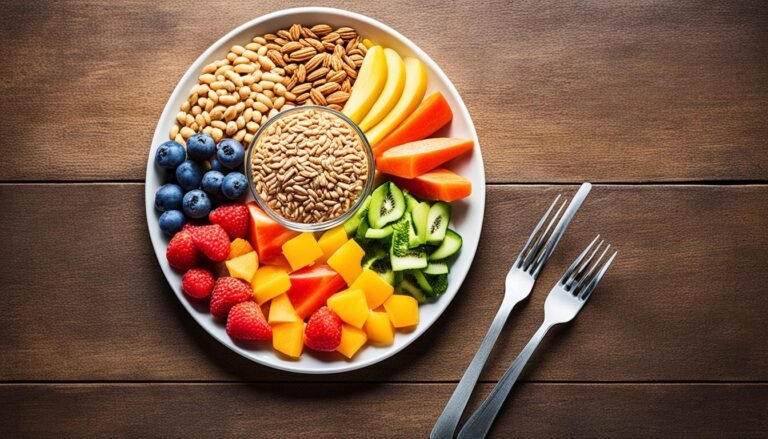What Lifestyle is the Happiest?
Over the last 10 years of living in 4 different countries/continents, I’ve had the opportunity to observe and learn from some of the happiest people I know. Their lifestyles and ways of being stand out from the crowd, and they have taught me valuable lessons about finding true happiness.
The happiest people prioritize their well-being, relationships, and personal growth. They understand that happiness is not solely determined by external circumstances or genetic factors, but rather a result of intentional actions, habits, and mindset.
So, what are the keys to living a happier life? Let’s explore the essence of happiness and discover the habits and practices that can help us lead a joyous and fulfilling life.
Key Takeaways:
- The happiest people prioritize their well-being, relationships, and personal growth.
- Happiness is a result of intentional actions, habits, and mindset.
- Spending time outdoors, engaging in physical activity, and nurturing relationships are important for happiness.
- Expressing gratitude, practicing mindfulness, and embracing challenges contribute to a happier life.
- Happiness is a journey, and it is up to us to choose to live a joyful and meaningful life.
The Common Habits of Happy People
When it comes to happiness, certain habits tend to be common among the happiest individuals. These habits contribute to their overall well-being and sense of fulfillment. By incorporating these habits into our own lives, we can increase our own happiness and lead more meaningful lives.
Spending Time Outdoors
One of the key habits of happy people is spending time outdoors. Whether it’s going for a walk in nature, practicing outdoor sports, or simply enjoying the fresh air, being in nature has been shown to improve mood, reduce stress, and increase overall happiness.
Engaging in Physical Activity
Happy individuals prioritize physical activity and make it a part of their daily routine. Engaging in exercise releases endorphins, boosts energy levels, and improves overall well-being. It can be as simple as going for a jog, attending a fitness class, or participating in a team sport.
Nurturing Relationships
Building and maintaining meaningful relationships is another habit of happy people. They prioritize spending time with loved ones, nurturing friendships, and expressing kindness and gratitude towards others. Positive social connections contribute to a sense of belonging and happiness.
| Happiness Habits | Impact on Happiness |
|---|---|
| Spending time outdoors | Improves mood and reduces stress |
| Engaging in physical activity | Increases endorphin release and improves overall well-being |
| Nurturing relationships | Contributes to a sense of belonging and happiness |
“The happiest people prioritize spending time outdoors, engaging in physical activity, and nurturing relationships. These habits contribute to their overall well-being and sense of fulfillment.”
By adopting these habits, we can cultivate a happier and more fulfilling life. Incorporating outdoor activities, regular exercise, and meaningful connections into our daily routines can have a profound impact on our overall happiness.
The Impact of Genetics and Environment on Happiness
When it comes to happiness, the role of genetics and environment cannot be overlooked. According to renowned psychologist Martin Seligman, these factors play a significant role in determining our overall well-being. Studies suggest that genetics and environment contribute to approximately 60% of our happiness, with the remaining 40% influenced by personal choices and responses to life circumstances.
While genetics predispose certain individuals to be more prone to happiness or unhappiness, environmental factors can also shape our happiness levels. Our upbringing, social connections, and cultural influences all contribute to our overall sense of well-being. However, it is important to note that these factors do not solely dictate our happiness. The choices we make and how we respond to life’s challenges can greatly impact our happiness.
Interestingly, studies have shown that even when faced with adverse circumstances, such as financial difficulties or health issues, individuals with a positive mindset and resilience are more likely to maintain higher levels of happiness and life satisfaction.
Understanding the interplay between genetics, environment, and personal choices can empower us to actively pursue happiness. While we cannot change our genetic makeup, we can cultivate a positive mindset, surround ourselves with supportive relationships, and engage in behaviors that promote well-being. By making conscious decisions to prioritize our happiness and embracing personal growth, we can enhance our overall happiness and live more fulfilling lives.
| Genetics and Happiness | Environmental Factors | Happiness Determinants |
|---|---|---|
| Our genetic makeup influences our predisposition to happiness or unhappiness. | Our upbringing, social connections, and cultural influences shape our happiness levels. | Personal choices and responses to life circumstances greatly impact our overall happiness. |
| Approximately 60% of our happiness is determined by genetics and the environment. | Factors such as family, friends, and societal norms contribute to our well-being. | Resilience, positive mindset, and personal growth play a significant role in our happiness. |
| While genetics are beyond our control, we can actively shape our environment and make choices that promote happiness. | Creating a supportive social network, pursuing meaningful activities, and practicing self-care are key environmental factors. | By cultivating a positive mindset and embracing personal growth, we can enhance our overall happiness. |
The Power of Positive Psychology
Positive psychology, as pioneered by Martin Seligman, focuses on the study of well-being and happiness. It looks beyond the traditional approach of understanding and treating mental illness to identify the factors that contribute to human flourishing. Through extensive research, positive psychology has uncovered valuable insights into how we can cultivate happiness and live fulfilling lives.
One of the key findings in happiness research is the importance of cultivating a positive mindset. This involves shifting our focus towards gratitude, optimism, and self-belief. By nurturing positive emotions and thoughts, we can enhance our overall well-being and happiness.
Positive psychology also emphasizes the significance of engaging in meaningful activities and building positive relationships. Finding purpose and meaning in our lives, whether through work, hobbies, or volunteering, can bring a sense of fulfillment and satisfaction. Additionally, fostering strong and supportive connections with others contributes to our happiness and provides a valuable support system.

The Benefits of Positive Psychology
- Increased happiness and life satisfaction
- Improved mental and emotional well-being
- Enhanced resilience and ability to cope with challenges
- Reduced stress and anxiety
- Greater self-awareness and self-acceptance
By embracing the principles of positive psychology and incorporating them into our daily lives, we can create a foundation for lasting happiness and well-being.
The Role of Relationships in Happiness
When it comes to happiness, the importance of nurturing relationships and fostering social connections cannot be overstated. Happy individuals understand that meaningful and fulfilling relationships are a key component of a joyful and fulfilling life. By investing time and effort into building and maintaining strong connections with family and friends, we can significantly enhance our overall happiness.
Positive and supportive relationships provide a sense of belonging and support during both the good times and the challenging moments in life. Surrounding ourselves with people who uplift us and bring out the best in us can have a profound impact on our well-being. Research has shown that individuals with strong social connections tend to experience lower rates of stress, increased self-esteem, and improved overall mental health.
Expressing gratitude and kindness towards others is another important aspect of nurturing friendships and social connections. By showing appreciation for the people in our lives and practicing acts of kindness, we not only strengthen our relationships but also cultivate positive emotions within ourselves. Small gestures of kindness and gratitude can go a long way in fostering deeper connections and creating a positive social circle.
Happiness and social connections go hand in hand, with each reinforcing and supporting the other. By prioritizing our relationships, expressing gratitude, and fostering a positive social network, we can cultivate a sense of belonging, connection, and joy in our lives. Remember, it is the quality of our relationships that truly enriches our journey towards happiness.
The Importance of Social Connections
| Benefits of Social Connections | Ways to Nurture Relationships |
|---|---|
|
|
“The happiest moments in my life are the ones spent with loved ones, creating memories and sharing laughter.” – Unknown
The Influence of Mindfulness and Gratitude
The happiest people practice mindfulness and gratitude as part of their daily lives. They understand the profound impact that these practices have on their overall happiness and well-being. Mindfulness involves being fully present in the moment, embracing each experience with awareness and non-judgment. By cultivating mindfulness, individuals can reduce stress, increase self-awareness, and find greater joy and contentment in their lives.
Gratitude is another powerful tool that happy people utilize. They take the time to appreciate the blessings, big and small, that surround them. By expressing gratitude for what they have, they shift their focus away from negativity and cultivate a positive attitude. Gratitude has been linked to numerous benefits, including increased happiness, improved relationships, and better physical health.
“Gratitude is not only the greatest of virtues, but the parent of all others.” – Marcus Tullius Cicero
Practicing mindfulness and gratitude allows individuals to be fully present, opening themselves up to the abundance and beauty of each moment. It helps them to let go of worries about the past or future and to embrace the richness of the present. By incorporating these practices into their daily lives, they are able to experience greater happiness, peace, and fulfillment.

| Mindfulness | Gratitude | |
|---|---|---|
| Definition | Being fully present in the moment, non-judgmentally. | Feeling and expressing appreciation for what one has. |
| Benefits |
|
|
| Practices |
|
|
The Connection Between Physical Activity and Happiness
Physical activity is not only essential for maintaining good health and fitness but also plays a significant role in our overall happiness and well-being. Engaging in regular exercise has been proven to have a positive impact on our mental and emotional state, allowing us to experience greater levels of happiness and fulfillment.
When we exercise, our bodies release endorphins, which are often referred to as “feel-good” hormones. These endorphins interact with receptors in our brains, triggering positive feelings and reducing stress and anxiety. In fact, studies have shown that regular exercise can be just as effective as medication in relieving symptoms of depression and anxiety.
Moreover, physical activity provides a sense of accomplishment and boosts our self-esteem. Setting and achieving fitness goals, whether it’s completing a challenging workout routine or participating in a sports competition, can contribute to a greater sense of happiness and confidence. Additionally, exercise can improve our sleep quality, increase our energy levels, and enhance our cognitive function, all of which have a positive impact on our overall well-being.
| Exercise Benefits | Examples | |
|---|---|---|
| Improved mood | Regular physical activity can boost your mood and reduce symptoms of depression and anxiety. | Running, cycling, dancing |
| Stress reduction | Exercise can help reduce stress and improve your ability to cope with life’s challenges. | Yoga, tai chi, swimming |
| Increased energy | Engaging in regular exercise can increase your energy levels and combat fatigue. | Cardio workouts, group fitness classes |
| Enhanced self-esteem | Regular physical activity can boost your self-confidence and contribute to a positive self-image. | Weightlifting, martial arts, team sports |
| Improved sleep | Exercise can help regulate your sleep patterns and promote better-quality sleep. | Jogging, Pilates, yoga |
Exercise is a powerful tool for improving our mental well-being and increasing our overall happiness. It not only benefits our physical health but also has a profound impact on our emotional state and sense of well-being. Incorporating regular exercise into our daily lives can lead to greater levels of happiness, reduced stress, enhanced self-esteem, and improved overall quality of life. So, lace up your sneakers, find an activity you enjoy, and let the happiness flow through movement.
The Power of Lifelong Learning and Personal Growth
When it comes to living a happy and fulfilling life, one key factor that sets apart the happiest people is their commitment to lifelong learning and personal growth. Embracing continuous learning and seeking new experiences play a significant role in enhancing overall happiness and well-being.
Learning is not limited to formal education or acquiring new academic degrees. It encompasses a wide range of activities, from reading books and articles to attending workshops and exploring different cultures. Engaging in these intellectual pursuits expands our knowledge, broadens our perspectives, and stimulates our minds.
By actively pursuing personal growth, we challenge ourselves, step out of our comfort zones, and discover new strengths and abilities. Through this process, we gain a sense of accomplishment, which contributes to our overall happiness and self-esteem.
As Albert Einstein once said, “The more I learn, the more I realize how much I don’t know.” This humble acknowledgment of the vastness of knowledge fuels a lifelong curiosity that fuels our thirst for learning. By nurturing this mindset, we can continuously evolve and grow, ensuring that we never stop improving ourselves and our understanding of the world around us.
| Lifelong Learning | Personal Growth |
|---|---|
| Expands knowledge and perspectives | Challenges comfort zones |
| Stimulates intellectual curiosity | Builds self-confidence |
| Enhances overall happiness and well-being | Fosters a sense of purpose and fulfillment |
“The journey of lifelong learning is a path towards happiness and personal growth. By embracing knowledge and constantly seeking new experiences, we expand our horizons, challenge ourselves, and cultivate a sense of purpose. Let us never stop learning, for it is through acquiring wisdom that we truly find fulfillment.”
Coping with Challenges and Resilience
The journey to happiness is not without its obstacles. Life presents us with challenges, hardships, and setbacks that can test our emotional strength. However, the happiest people have developed coping mechanisms and a resilient mindset to navigate these difficulties and emerge stronger on the other side.
Resilience, the ability to bounce back from adversity, is a key characteristic of happy individuals. They understand that setbacks are part of life and view them as opportunities for growth and learning. Instead of dwelling on the negative, they focus on finding solutions and maintaining a positive outlook.
Emotional strength plays a crucial role in coping with challenges. Happy individuals have developed strategies to manage stress, such as practicing self-care, seeking support from loved ones, and engaging in activities that bring them joy. They prioritize their mental well-being and understand the importance of taking care of themselves even during difficult times.
| Resilience Techniques | Benefits |
|---|---|
| Practicing self-care | Reduces stress and promotes emotional well-being |
| Seeking support from loved ones | Provides a strong support network and a sense of belonging |
| Engaging in activities that bring joy | Increases positive emotions and boosts overall happiness |
Building resilience is a lifelong process, and it requires cultivating a positive mindset and developing healthy coping mechanisms. By embracing challenges and employing these strategies, we can strengthen our ability to navigate difficult times and maintain our happiness in the face of adversity.

Resilience Quotes:
“Resilience is not about avoiding adversity; it’s about facing it head-on and emerging stronger.” – Unknown
“The strongest people are not those who show strength in front of us but those who win battles we know nothing about.” – Unknown
Conclusion
In conclusion, living a happy life is within our grasp. It is not solely determined by external circumstances or genetic factors, but rather by the choices we make and the habits we cultivate. The keys to happiness lie in prioritizing our well-being, nurturing relationships, expressing gratitude, practicing mindfulness, pursuing personal growth, and embracing challenges.
By spending time outdoors, engaging in physical activity, and surrounding ourselves with positive and supportive people, we can enhance our overall happiness. Additionally, practicing mindfulness and gratitude allows us to savor the present moment and appreciate the simple joys of life.
Remember, happiness is a journey. It requires intentional actions and a positive mindset. By adopting these habits and making them a part of our daily lives, we can unlock the door to a joyful and meaningful existence. So, let us choose to prioritize our happiness and live a life filled with love, growth, and fulfillment.
FAQ
What lifestyle is the happiest?
The happiest lifestyle is one that prioritizes spending time outdoors, engaging in physical activity, nurturing relationships, expressing gratitude, practicing mindfulness, pursuing personal growth, and embracing challenges.
What are the common habits of happy people?
The common habits of happy people include spending time outside, engaging in physical activity, pursuing hobbies, having regular interactions with friends, expressing kindness and gratitude, pushing themselves out of their comfort zones, and engaging in personal growth and learning.
How do genetics and environment influence happiness?
According to research, 60 percent of happiness is determined by genetics and the environment, while the remaining 40 percent is influenced by personal choices and responses to life circumstances. This means that while some aspects of happiness are beyond our control, a significant portion is within our power to shape.
What is positive psychology?
Positive psychology is the study of well-being and happiness. It focuses on factors such as positive emotions, engagement in meaningful activities, positive relationships, finding purpose and meaning in life, and personal accomplishment. Positive psychology highlights the importance of cultivating a positive mindset, nurturing relationships, practicing gratitude, and pursuing personal growth to enhance overall happiness.
How do relationships impact happiness?
The quality of relationships, including family and friends, has a significant impact on happiness. Happy individuals devote time and effort to nurture and enjoy these relationships. They express gratitude and kindness towards others and actively engage in social activities. Surrounding oneself with positive and supportive people can contribute to a sense of belonging, connection, and overall happiness.
What is the role of mindfulness and gratitude in happiness?
The happiest people practice mindfulness and gratitude as part of their daily lives. They savor life’s pleasures, appreciate the present moment, and cultivate a sense of gratitude for what they have. Mindfulness practices such as meditation and being fully present in the moment can help reduce stress, enhance well-being, and increase overall happiness. Similarly, expressing gratitude for the small and big blessings in life has been shown to enhance positive emotions and life satisfaction.
How does physical activity contribute to happiness?
Engaging in regular physical activity is a common habit among the happiest people. Exercise has been linked to improved mood, reduced stress, increased endorphin release, and enhanced overall well-being. The happiest individuals prioritize physical fitness and make it a part of their weekly or even daily routine. Movement and physical activity contribute to their happiness and overall sense of fulfillment.
What is the importance of lifelong learning and personal growth?
The happiest people have a thirst for knowledge and actively engage in lifelong learning. Continuous personal growth and intellectual stimulation contribute to their happiness and overall well-being. By embracing new challenges and expanding their minds, they find fulfillment and a sense of purpose in life. Learning is seen as an ongoing process that enhances happiness and enriches their lives.
How do happy people cope with challenges?
The happiest people exhibit resilience and emotional strength in the face of adversity. They possess the ability to bounce back from failure and hardship, using these experiences as opportunities for growth and learning. Resilience is a vital characteristic of happy individuals, allowing them to cope effectively with life’s ups and downs. They understand that setbacks are a part of life but choose to focus on the positive and maintain a positive outlook.
What is the key to living a happy life?
Happiness is not solely determined by external circumstances or genetic factors. It is a result of intentional actions, habits, and mindset. By adopting habits such as spending time outdoors, engaging in physical activity, nurturing relationships, expressing gratitude, practicing mindfulness, pursuing personal growth, and embracing challenges, we can increase our overall happiness and live more fulfilling lives. Remember, happiness is a journey, and it is up to us to choose to live a joyful and meaningful life.






